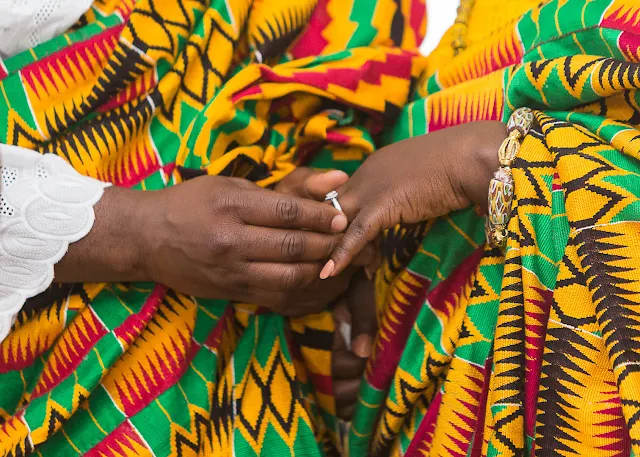Marriage in Ghana has a rich cultural and historical significance that is rooted in the traditions and customs of the various ethnic groups that make up the country. Here are some key historical and cultural aspects of marriage in Ghana:
- Traditional Marriage: Traditional marriage in Ghana usually involves a
ceremonies that vary depending on the ethnic group. For example, in the Akan culture, the groom is expected to present gifts and drinks to the bride's family before the wedding ceremony can take place. The wedding itself is usually a colorful affair, with traditional attire, music, and dancing.
Colonial Influence: During the colonial era, the British introduced the concept of a civil marriage, which is recognized by law. However, many Ghanaians still prefer to have a traditional marriage ceremony in addition to a civil one.
Polygamy: Polygamy was common in traditional Ghanaian society, and some ethnic groups still practice it today. However, it is not recognized by law, and civil marriages are limited to one spouse.
Modern Trends: In recent years, there has been a trend towards more modern, Western-style weddings in Ghana, with couples opting for white dresses, formal suits, and elaborate wedding receptions. However, traditional customs and rituals still play an important role in many Ghanaian weddings.
Marriage Laws: The laws governing marriage in Ghana are based on the Marriage Ordinance of 1884, which was inherited from the British colonial era. Under Ghanaian law, a marriage is only recognized if it is conducted in accordance with civil or religious customs and is registered with the Registrar General's Department.
Overall, marriage in Ghana is a complex and culturally rich institution that reflects the country's history, traditions, and values.

Post a Comment